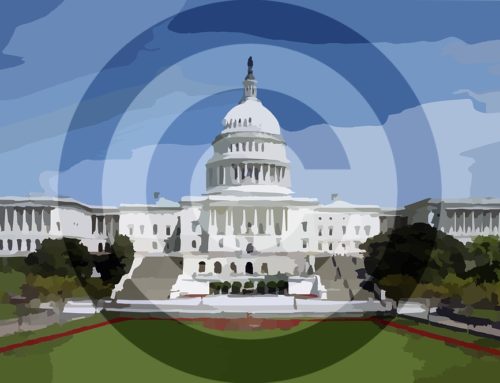The 2019 summer box-office season is already off to a huge start with the record-breaking release of Marvel’s “Avengers: Endgame.” The release of this blockbuster film has been coupled with the final season of “Game of Thrones” – arguably the most talked-about TV show in recent years. While a great many Marvel fans saw the film opening weekend and the majority of “Thrones” fans watch the series as it airs every Sunday night, not everyone was or is able to do so. If you aren’t able to see these and other highly talked-about films and shows immediately upon their release, the rise of social media has made it nearly impossible to avoid spoilers. While posting or talking about spoilers is largely viewed as a major social faux pas, they still abound both online and in water-cooler conversations. Although most spoilers simply carry heavy social consequences, some can cross the line of copyright infringement and subsequent legal consequences. So, what’s the difference between a socially irresponsible spoiler and a legally troubling one? Read on to find out.
For die-hard fans of popular movies or TV series, spoilers are no laughing matter. Following the recent release of “Avengers: Endgame,” a fast-food employee in Houston allegedly punched their co-worker after they spoiled the ending of the film. The assailant was issued an assault citation following the incident. On the other side of the world, a man in Hong Kong was allegedly beaten after he left a screening of “Endgame” and loudly shouted spoilers at people passing by the movie theater. When it comes to spoilers, no one is safe from the social consequences they bring – even celebrities. Buffalo Bills running back LeSean McCoy recently faced a torrent of online ridicule after he posted a reaction to the Marvel movie on both his Twitter and Instagram accounts. The reaction he shared included a pivotal plot point from the film, which sent his thousands of followers into a frenzy. One follower has gone as far as to start a petition to demand that the Bills fire McCoy and that Twitter ban his account as well. Although the aforementioned people have suffered varying degrees of social ridicule for posting and, in some cases, shouting spoilers, none of them is likely to face legal repercussions. The same, however, cannot be said in the following cases.
Over nearly a decade, AMC’s “The Walking Dead” has amassed a large and loyal fanbase. With this, of course, comes fans who are dying to know anything and everything about the show, even going as far as to uncover plot points before they’ve aired. It’s in instances such as this that spoilers become troubling in a legal sense. One prominent fan group known as “The Spoiling Dead Fans” was threatened with a lawsuit by AMC in 2016 after the group began snooping around for clues as to what transpired in one of the show’s season finales. AMC was none too pleased with the potential risk that plot points for the coming season would be revealed, and sent the fan group a cease and desist notice. The notice forbade the group from making any sort of predictions as to how the next season would unravel, as AMC claimed it would constitute copyright infringement and violate terms of a trade secret.
Similarly, producers of the popular reality TV series “RuPaul’s Drag Race” were overwhelmed by the actions of one notorious leaker in 2018. World of Wonder Productions, the company responsible for producing the series, filed a lawsuit against an anonymous leaker known as “RealityTVLeaks” for copyright infringement following months of the user posting leaks and unaired footage in a popular Reddit group related to the TV show. According to the lawsuit, “without WOW’s authorization, the defendant has obtained copies of episodes of RPDR: All Stars… and has uploaded them to social media platforms including Instagram, Twitter and Reddit.” The suit went on to allege that “the defendant has brazenly touted their posts as ’leaks‘ and ’spoilers‘ and has also removed copyright management information identifying WOW as the copyright owner and author of the episodes and added misleading management information to the episode clips they leak online, falsely identifying the defendant as the copyright owner and author of the episodes.”
It seems quite obvious in cases such as the ones mentioned above that spoilers that go to this level are clearly breaking the law. One journalist, however, begs to differ. Reality Steve (real name Stephen Carbone) runs a popular blog based on the “Bachelor” television series. In 2017, however, the fate of his blog came into question as he was faced with a cease and desist notice from NKZ Productions, the company that produces the series. This was not the first time Carbone had encountered legal trouble with the blog, but it was perhaps the most serious. The notice was sent ahead of the premiere of the series’ 22nd season in hopes that the blog would refrain from sharing unreleased information about the season and its contestants. Carbone, however, did not take the notice lightly. In a post to the blog he said, “This isn’t CIA level shit. This isn’t insider trading. What I do is on such a small scale in even just the TV world, it’s not really a blip on the radar. If this were the only show on television, yes, it’d probably be a big deal. But it’s not.” Carbone continued in saying that the notice infringed on his rights as a journalist. “They [NKZ Productions] are being completely unreasonable, bullying me into essentially giving up my sources, and are trying to prevent me from continuing my livelihood,” Carbone wrote. “They are infringing on my First Amendment Rights as a reporter and trying to squash my freedom of speech because they don’t like that I’m spoiling their show.” Ultimately, NKZ Productions did not follow through with their notice and a lawsuit was never launched. Reality Steve continues to post “Bachelor” spoilers online.
While none of the aforementioned cases has gone as far as a trial, and most similar cases have been settled out of court for undisclosed and confidential terms, there is a cut-and-dried doctrine to apply in order to determine whether a work’s copyright has been infringed upon or whether it falls under fair-use doctrine. In the United States, there is a four-part test to determine the qualities of a copyrighted work. They include:
- Purpose and Character
- Ex: Whether or not the use of the work is being used for commercial purposes
- Nature of the copyrighted work
- Ex: Whether or not the copyrighted work is being exploited for public benefit
- Amount and sustainability of the portion taken
- Ex: Whether or not the work in question has, for instance, already been made available to the public
- Effect on the use upon the potential market
- Ex: Whether or not the copyright holder could potentially lose earnings if the work is shared to the public by another party.
Although these guidelines can be ambiguous in some cases, they do make it easier to determine whether or not a work is copyrighted or can be used under the doctrine of fair use. Following these guidelines, it seems clear that some of the aforementioned cases were infringing on copyrighted material. However, when it comes to online forums dedicated to predicting outcomes of a popular series, the argument for fair use becomes more apparent.
Ultimately, whether a spoiler results in social or legal consequences comes in the difference between “I think” and “I know.” Making predictions is something we all do when we’re invested in a series or franchise. However, the posting of actual content that definitively spoils the outcome of an upcoming episode or film is when lawsuits become more substantiated. As social media becomes more and more prevalent in our lives though, spoilers are becoming harder and harder to avoid. Combining this with the fact that we aren’t all able to watch these popular pieces of media at the same time anymore means that we’re all walking on eggshells in conversations about them.
Whether you’re in conversation with colleagues or friends, or if you’re reading and posting in an online forum about a series or film, making sure everyone is on the same page before you give away major plot points is a good rule to follow. In 2019, avoiding spoilers is hard enough as it is – so we can at least all do our own part to police ourselves and ensure that spoiler-free conversations and spaces remain so. No one wants to have something they’ve been looking forward to intentionally ruined, so watch what you say when discussing these hot-button pieces of media. If not, you may find that the court of public opinion can be just as damaging as any legal ramifications.




